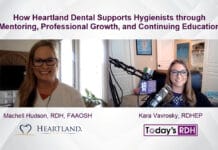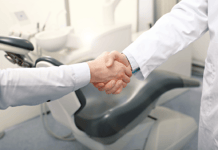Oral health is an essential part of maintaining a healthy life. An infected tooth can lead to a blood infection, which can be deadly if not taken care of immediately. Routine dental visits with a dental hygienist can spot problem areas before an infection can invade. Oral and throat cancers can be spotted early and immediately referred to the correct doctor. Oral health is also essential for a healthy psyche and a healthy body overall.
A Study of Student Oral Practices
Oral Hygiene Practices and Teeth Cleaning Techniques Among Medical Students by Sajeeda Nasim, et al., concerns the oral hygiene practices and home care techniques of extremely busy medical students who are not in the dental field. The students who took part in the study were given a self-constructed questionnaire about their dental hygiene and then asked to demonstrate their brushing techniques on a model while being observed. The students were then asked to watch a video and given a checklist on proper hygiene techniques.
Hypothesis: What We Believe to Be True
It is assumed that those in the medical field will have a correct understanding of the correlation between oral health and its effects on the rest of the body since they have such an increased knowledge of the human body. Their advanced knowledge of health practices should mean that they, the practitioners, should have the correct toothbrush, use mouthwash, and clean interdentally. They should understand and apply correct brushing techniques and brush at least twice a day. This study was created to verify or negate this information.
The Study: Our Methods
A cross-sectional analytical survey was completed in 2016 on volunteer medical students at Shifa College of Medicine in Pakistan. Shifa is a private medical university that caters to the brightest students who can also afford the tuition. Their identities were kept anonymous, of course, and the study was open to every student who wanted to help. The information was compiled and analyzed throughout 2017 and 2018.
Students were broken up into two groups, those who are beginning their studies were in one group, and older, more advanced students made up the second group. The first stage was a twenty-eight question questionnaire that the students created themselves that covered all aspects of dental hygiene, such as brushing, cleaning interdentally, and information on dental visits. In the second step, the students grabbed a toothbrush and other dental aids to show an observer on a model of how they take care of their teeth at home. The observer had a general checklist of correct hygiene procedures to evaluate the students individually.
Evaluations: The Numbers
Four hundred and forty-four students took part in the study, out of which fifty-eight percent were male, and forty-two percent were female. Fifty-seven percent of participants were pre-med students, and forty-three percent were full medical students completing their clinicals. The majority of students only went to the dentist if they had to go due to pain or discomfort. Females were found to have a greater understanding of dental hygiene and its practices.
Forty percent of the students used a medium bristled toothbrush, while only thirty-one percent used the recommended soft toothbrushes. They did not know the damage a medium bristled toothbrush can do to their dentition and gingiva. Fifty-six percent of the students brushed twice a day while thirty-seven brushed only once.
Less than half of the students involved in the study used mouthwash, and only eight percent cleaned interdentally. Only thirty-five percent of the students changed their toothbrush every two months, and twenty-seven percent changed their brush once every three months. The students each brushed a little over one minute on average.
Conclusion
The study was approved as an ethically sound investigation by the college and hospital’s review and ethics board. On the whole, medical students had faulty home care techniques and needed to be taught how to properly care for their teeth. They did not realize that the state of their teeth had so much to do with their physical and mental health.
Though the study was done in Pakistan, the results shed light on the medical field and their lack of study on dental practices that occur in almost every program all over the world. Don’t assume that your patient is knowledgeable about oral hygiene if they are in the medical field. Since the number of emergency room visits for dental-related emergencies increases every year, it’s imperative to teach everyone, including those in the medical field, about proper oral hygiene and its effects on everyone’s quality of life.











